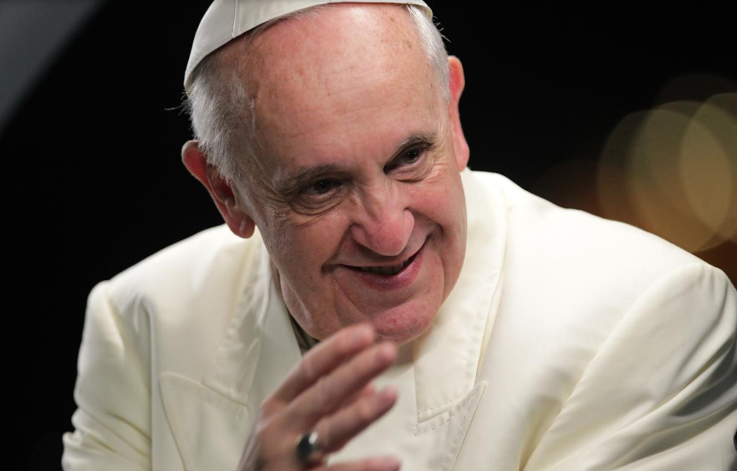
Pope Francis Dies at 88 from Stroke and Heart Failure: Updates and Reactions
The Vatican announced that Pope Francis passed away on Monday morning (21), one day after blessing thousands of faithful in St. Peter’s Square during Easter.
Updated on April 21, 2025
Cause of Death: Stroke and Irreversible Heart Failure
Pope Francis, leader of the Catholic Church since 2013, passed away at the age of 88 after suffering a stroke followed by irreversible heart failure, as announced by the Vatican’s chief physician, Dr. Andrea Arcangeli.
According to the official statement, the pontiff fell into a coma after the stroke, leading to fatal cardiocirculatory collapse. He also faced respiratory problems resulting from bilateral pneumonia, in addition to type 2 diabetes and hypertension.
Francis died at 7:35 a.m. (local time) at Casa Santa Marta, his residence in the Vatican, where he preferred to live instead of the traditional Apostolic Palace.
Last Public Appearance: Easter Blessing
On Easter Sunday (20), Pope Francis surprised the world by appearing in St. Peter’s Square to bless the faithful, even after a long convalescence due to health problems.
He had spent more than a month hospitalized for double pneumonia, but insisted on participating in the celebration. It was his last public appearance before he died.
Worldwide Reactions: Leaders and Personalities Pay Tribute
The death of Pope Francis generated a wave of condolences from global leaders, religious figures and personalities:
Donald Trump (Former US President): “He loved the world and especially those who were in difficulty.”
Emmanuel Macron (President of France): “A voice for peace and for the most vulnerable.”
Volodymyr Zelensky (President of Ukraine): “He prayed for peace in Ukraine and gave hope to millions.”
Lula da Silva (President of Brazil): “Humanity loses a voice of tolerance and solidarity.”
Even the LGBTQ+ community highlighted his legacy of inclusion, remembering his historic words: “Who am I to judge?”
What Happens Now? Conclave and Sede Vacante
With the death of the Pope, the Vatican entered the period of “Sede Vacante,” when the throne of St. Peter is vacant until the election of a new pontiff.
The papal apartment was sealed with red ribbon and wax, as per tradition.
Cardinals will meet in a conclave to choose the successor.
Among the favorites are:
Cardinal Luis Tagle (Filipino, progressive)
Cardinal Pietro Parolin (Vatican Secretary of State)
Cardinal Robert Sarah (Conservative, Guinea)
Funeral and Last Respects
Pope Francis’ funeral is expected to take place in the coming days, with world leaders including Donald Trump and Emmanuel Macron in attendance.
Meanwhile, faithful around the world are gathering for vigils and masses in his memory.
Francis’ Legacy: The Pope of Mercy
Francis will be remembered as:
✅ Defender of the poor and refugees
✅ Promoter of interreligious dialogue
✅ Critic of unbridled capitalism
✅ First Latin American pope
His iconic phrase sums up his mission:
“Who am I to judge?”
The News of Pope Francis’ Death
On June 4, 2023, the Vatican confirmed the sad news of Pope Francis’ death at the age of 88. The pontiff died as a result of complications related to a stroke and heart failure, conditions he had already faced in recent months. He died early in the morning, at 8:15 am, at the Gemelli Hospital in Rome, where he had been admitted for treatment. The Pope, who stood out for his pastoral approach and compassion towards those in need, leaves a considerable legacy in the Catholic Church and in the world.
In the weeks leading up to his death, Pope Francis’ health had been a constant concern. He had been hospitalized twice in 2023 due to respiratory problems and, on one occasion, underwent surgery to treat a colon condition. Despite the adversities, Francis maintained an active schedule, carrying out commitments and activities and participating in the Easter celebrations, which surprised many given his age and health status. However, in his final days, his condition rapidly deteriorated, requiring intensive care.
The news of Pope Francis’ death reverberated around the world, provoking emotional reactions from the faithful and religious leaders. The public expressed a mixture of sadness and gratitude for the life and service of the pontiff, who sought to reform aspects of the Church and promote peace among peoples. The funeral ceremonies are expected to be widely publicized, drawing crowds of devotees, as well as dignitaries and representatives of different religious traditions, in a final tribute to the man who dedicated his life to love and inclusion.
Immediate Reactions from the Vatican and the World
The death of Pope Francis provoked an outpouring of immediate reactions, not only within the Catholic Church, but also in political and social spheres around the world. Words of mourning and tributes began to flow immediately after the announcement of his death, reflecting the lasting impact that his papacy had on the lives of millions. The Vatican, still in shock, issued an official statement that highlighted Pope Francis’ commitment to promoting peace and global solidarity. Cardinals and ecclesiastical leaders expressed their condolences, highlighting the Pope’s legacy in building interreligious dialogue and defending the most vulnerable. Among the most notable reactions, Cardinal Pietro Parolin, Vatican Secretary of State, declared that “the loss of Pope Francis is deeply felt in every corner of the world,” emphasizing the importance of his message of love and compassion. In turn, political leaders from different parts of the world, from presidents to prime ministers, did not hesitate to pay tribute. The President of the United States mentioned that Pope Francis “changed the landscape of modern religion with his call for environmental care and social justice.” These words resonate at a time when moral leadership is more needed than ever. International organizations also spoke out, highlighting Pope Francis’ influence in promoting human rights and empowering minorities. The UN issued a statement saying that the Pope’s voice “has always been a resounding advocate for peace, making him a global champion of human dignity.” The immediate reactions to Pope Francis’ death thus highlight the vastness of his influence and the void he has left in an age that demands leaders with vision and compassion.
The Legacy of Pope Francis
Pope Francis’ legacy is multifaceted, reflecting an innovative and inclusive approach to leading the Catholic Church in contemporary challenges. Since his accession to the papacy, he has emphasized the importance of mercy, compassion, and interreligious dialogue, fostering a Church that is a welcoming home for all. His message has often focused on revitalizing spirituality and the need for a Church that actively engages with the realities of the modern world.
One of Pope Francis’ most notable contributions has been his emphasis on social and environmental issues, culminating in the encyclical “Laudato Si’.” In this document, he emphasizes the urgency of addressing the climate crisis and promoting sustainability. By addressing the interconnection between poverty and environmental degradation, he emphasizes the moral responsibility that everyone has to care for creation. This approach has not only reoriented the Church’s discourse on ecological issues, but has also encouraged action in various communities around the world.
In addition, the Pope has been a prominent voice in the defense of social justice, addressing issues such as inequality, migrants’ rights and the fight against corruption. His leadership style is characterized by a pastoral approach that prioritizes listening and caring for the margins of society. This is reflected in his visits to communities
